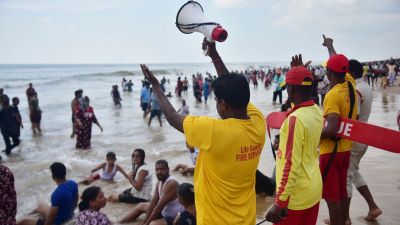‘Open Indian market to Africa’
Even as the Government is working towards allowing duty free market access to the Least Developed Countries in the SAARC region a year ahead of schedule

Even as the Government is working towards allowing duty free market access to the Least Developed Countries in the SAARC region a year ahead of schedule, it is facing a growing demand to open up its market for goods and services from another part of the world—Africa. At the same time, East African nations like Uganda are inviting India to tap their vast uranium mines to meet its nuclear energy needs.
Speaking to The Indian Express, Deputy High Commissioner of Uganda Nimisha Madhwani said: “India thinks South Africa, Nigeria and Egypt are all there is to Africa. It is missing out. An IBSA (India, Brazil and South Africa) pact has been worked out. So why leave East Africa out?”
The message to India was delivered loud and clear by Ugandan President Yoweri Kaguta Museveni to Minister of State for External Affairs Anand Sharma, who was attending the India-Africa partnership conclaves held in Kampala and Mozambique last month.
Taking a dig at the world’s attitude of equating Africa with aid, Museveni said at the conclave: “The Europeans waste a lot of our time coming here talking about aid. We told them: If you talk about aid, I go to sleep. What we need is market access. Open your markets to our products.”
While inviting Indian companies for infrastructure projects and to use Uganda’s strategic location to service other African markets, Museveni said that India must allow duty-free and quota-free market access for Africa’s products, just as the European Union, the United States and most recently, China have done.
Under the Everything But Arms (EBA) arrangement, EU allows African products into its market. Across the Atlantic, the Africa Growth and Opportunity Act (AGOA) will allow 6,500 products from 37 African nations into the US market till 2015. China has opened the way for 440 products, excluding coffee. However, Africa has hardly been able to exploit these opportunities. In fact, Museveni said India should incentivise its companies to invest in Africa so that they could take advantage of pacts like the AGOA and EBA.
While Sharma promised that discussions on free market access would be initiated with the Indian Chambers of Commerce, India can ill afford to take the demand lightly, as China has been aggressively investing in and engaging with Africa.
“The Africans have responded to China’s aggressive attitude. (But between) India and Africa, the bonds are emotional and historic. We should and can work together to industrialise ourselves in partnership,” Madhwani said. India would be welcome to come and exploit Uganda’s uranium mine reserves in its quest for nuclear power, Madhwani added.
During the World Trade Organisation talks at Hong Kong in December 2005, Union Commerce and Industry Minister Kamal Nath had said India was working on a duty-free, quota-free market access package for the world’s Least Developed Countries (LDCs) and the proposal would be taken to Cabinet soon. While that is yet to see the light of day, a similar package under the South Asian Free Trade Agreement for SAARC LDCs—including Bangladesh—is set to take off by the year-end.
One of the key African leaders instrumental in negotiating the market access packages with the EU, US and China, Museveni’s demand that India open up its market was also discussed at the African Union nations summit in Accra (Ghana) last month. African countries had stagnated in their 50 years of Independence, while Asian economies had transformed into First World because they lacked the stimuli needed for sustained growth and transformation, he said. Among the strategic stimuli Museveni mentioned was “a big market that consumes what entrepreneurs produce as is the case in China and India”.
Last year, India’s exports to Africa were at $8.06 billion while imports stood at a measly $12.45 million.





- 01
- 02
- 03
- 04
- 05


























